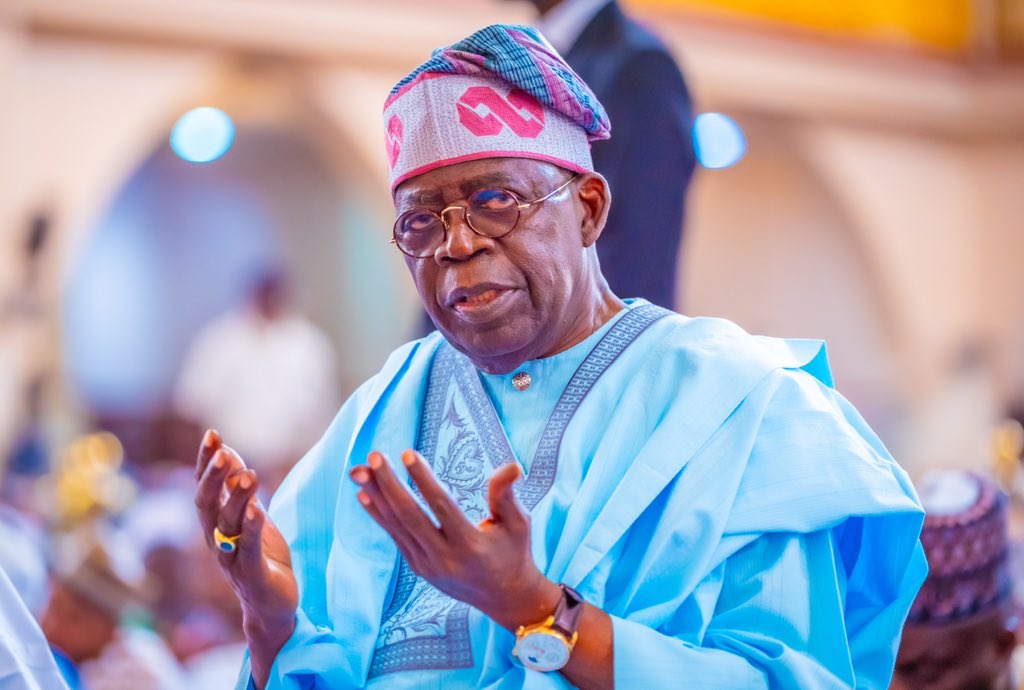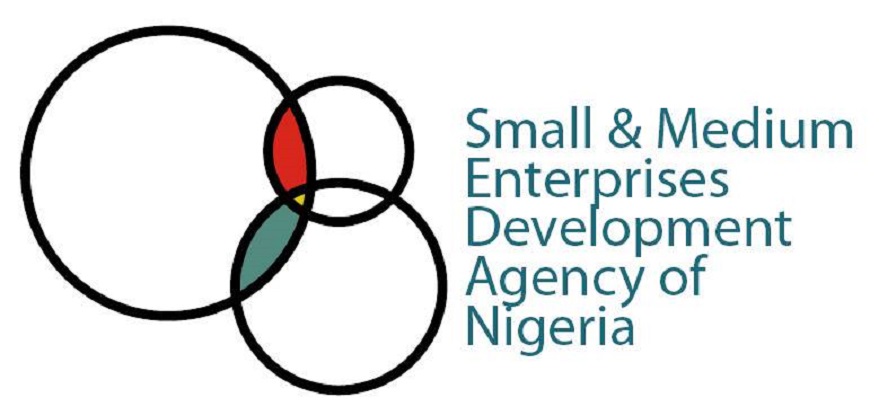General
African Competition Authorities Respond to COVID-19 Crisis

By Lerisha Naidu and Thato Mkhize
The substantial increase in confirmed COVID-19 cases in Africa has led to innumerable complaints of anti-competitive conduct from customers and consumers across the continent, who have expressed concerns over sudden price hikes of healthcare and hygiene products as well as identified essential products. This has prompted rapid responses from African competition authorities.
In South Africa, competition and consumer protection authorities are collaborating in efforts to examining complaints from customers and consumers implicating companies for excessive and/or exploitative pricing of essential products.
Such essential products include facemasks, toilet paper and hand sanitisers. In addition, South Africa’s Department of Trade, Industry and Competition has introduced new regulations, which together with existing competition regulations on excessive pricing, deal with pricing and supply matters during the national disaster.
These regulations do not prevent market players from implementing necessary price adjustments, their objective being to prevent unjustified price hikes and facilitate the collaboration of essential service providers in a regulated manner.
Further, essential service providers – the private healthcare sector, hotel industry, banking sector and retail property sector – have been granted block exemptions from certain provisions of the South African Competition Act, thereby enabling them to coordinate resources and infrastructure for the benefit of consumers during the period of the national disaster.
The country has also entered a 21-day lockdown period, which began on Thursday, 26 March 2020 and is due to end on 16 April 2020. During this period, all non-essential services providers are required to allow employees to operate from their homes in order to limit non-essential human interaction.
The lockdown has affected the operations of both the Competition Commission (Commission) and Competition Tribunal (Tribunal), requiring that both refocus their resources on complaints filed in relation to COVID-19 and other urgent matters over the 21 days.
The scaling down of operations by the competition authorities has proved to be necessary, not only to comply with the resolution of the National Coronavirus Command Council, but also to deal with the increase in COVID-19 complaints submitted to the Commission – 559 complaints have been received to-date.
In Namibia, the Namibian Competition Commission (NaCC) concluded a market analysis, which revealed that the price of immune boosters, hand sanitisers and 3ply facemasks have substantially increased due to growing demand for these essential products.
In response to this, the NaCC formed a dedicated task team under its Enforcement, Exemptions & Cartels Division, which will continue to investigate and prioritise price exploitation complaints in relation to essential healthcare and hygiene during the COVID-19 crisis.
The NaCC is cognisant of the fact that it is necessary for certain essential service providers to collaborate during this period; therefore, we can expect engagements between the NaCC and the Namibian government, with the aim of introducing block exemptions similar to those introduced in South Africa.
Mauritius has also experienced a surge in the pricing of essential goods in response to the COVID-19 pandemic.
In addition, certain suppliers of essential goods in Mauritius have come under the spotlight of the authority, suspected of creating artificial shortages of supplies.
In response, the Mauritian government has announced that its Competition Commission will be tasked with monitoring the market for unjustified price escalations of essential goods and will prosecute any businesses found to be engaging in such restricted trade practices during this period.
The rest of Southern Africa’s competition authorities are yet to issue cautionary measures or publish competition regulations in response of the effects of the COVID-19 pandemic on their markets.
Although the number of confirmed COVID-19 cases in the East African countries combined are significantly less than those reported in South Africa, competition authorities in Kenya, Tanzania, Malawi and Zambia have adopted a proactive approach to guarding against unjustified price hikes and the excessive pricing of essential goods during this period.
The Competition Authority of Kenya (CAK) has published a cautionary note warning manufacturers and retailers that are implicated in price fixing or any sort of price manipulation behaviour that they will be subject to an administrative penalty of up to 10% of turnover.
Further, the CAK has ordered the removal of exclusivity clauses in agreements between manufactures and distributors of maize flour, wheat flour, edible oils, rice, sanitizers and toilet papers, effective 26 March 2020.
Exclusive distribution agreements between market players interfere with the allocation of favourable prices in relation to essential goods. The CAK highlighted that negative effects of such agreements may be further exacerbated during pandemics such as COVID-19.
In addition, distributors who also operate in the downstream retail market have been requested to provide these essential goods to other retailers on non-discriminatory terms.
The Competition and Fair Trading Commission (CFTC) of Malawi concluded an investigation on 23 March 2020, which revealed that 11 pharmacies in Lilongwe and Blantyre were excessively pricing hand sanitisers, facemasks and gloves in response to the COVID-19 outbreak in Malawi. The CFTC has also published a cautionary note warning against excessive pricing during this period.
The Competition and Consumer Protection Commission of Zambia’s cautionary note was directed at companies and individuals that are excessively pricing hygiene products in response to the demand during the COVID-19 crisis.
The Fair Competition Commission in Tanzania has responded to the Ministry of Industry and Trade’s request to monitor and report on whether market players are maintaining reasonable prices on essential items such as sterilisers, masks and disinfectant hand wash during the COVID-19 pandemic.
From a West African perspective, Nigeria announced a 14-day lockdown of its two major cities, Lagos and Abuja, effective Monday, 30 March 2020 at 11pm.
Accordingly, the Federal Competition and Consumer Protection Commission (FCCPC) announced that it will be scaling down on its operations and available resources will be redirected to focus on COVID-19-related complaints and issues.
The FCCPC similarly published a cautionary notice to suppliers, retailers and online shopping platforms, warning them against irregularly increasing prices of essential hygiene products in response to increased demand caused by the COVID-19 epidemic.
The FCCPC has been active in the enforcement of competition laws amid the COVID-19 crisis. Currently, it has referred four supermarkets and their pharmacy distributors to court for conspiring to hike prices and selling essential products at unfair prices during the pandemic.
Apart from communication indicating the scaling down of operations by competition agencies in Morocco, Tunisia and Egypt, no other preventative measures in response to COVID-19 have been communicated by competition authorities in North Africa.
Numerous competition authorities in Africa are aware of the effects of unjustified price hikes and excessive pricing on already vulnerable economies.
They have responded by establishing specialised investigation teams, refocusing existing resources to COVID-19 specific complaints and introducing new competition regulations – as is the case in South Africa.
African competition authorities have further noted that collaboration between themselves and consumer protection authorities, as well as between competing essential service providers, is essential in order to enable countries to adequately respond to the COVID-19 crisis. Unprecedented times appear to have called for unprecedented measures for competition authorities across Africa.
Lerisha Naidu is a Partner at Sphesihle Nxumalo and Associate at Baker McKenzie Johannesburg, while Thato Mkhize is a Candidate Attorney, Competition and Antitrust Practice at Baker McKenzie Johannesburg
General
SERAP Sues Tinubu Over Failure to Probe Missing N57bn

By Adedapo Adesanya
The Socio-Economic Rights and Accountability Project (SERAP) has filed a lawsuit against President Bola Tinubu for not probing allegations of N57 billion of public funds said to be missing, diverted or stolen from the Federal Ministry of Humanitarian Affairs and Poverty Alleviation in 2021.
The allegations were documented in the 2021 audited report released last month by the Office of the Auditor-General of the Federation.
Joined in the suit as respondent is the Attorney General of the Federation and Minister of Justice, Mr Lateef Fagbemi (SAN).
In the suit number FHC/L/MISC/876/2024 filed last Friday at the Federal High Court, Lagos, SERAP is asking the court “to compel President Tinubu to direct Mr Fagbemi to work with appropriate anti-corruption agencies to promptly probe allegations that over N57 billion of public funds are missing, diverted or stolen from the Federal Ministry of Humanitarian Affairs and Poverty Alleviation in 2021.”
It also asked the court “to compel President Tinubu to direct Mr Fagbemi to work with appropriate anticorruption agencies to prosecute anyone suspected to be responsible for the missing N57 billion, if there is sufficient admissible evidence, and to recover any missing public funds.”
In the suit, the group argued that, “Investigating the allegations and prosecuting those suspected to be responsible for the missing N57 billion and recovering the missing funds would end the impunity of perpetrators.”
“The allegations amount to stealing from the poor. There is a legitimate public interest in ensuring justice and accountability for these grave allegations.
“Poor Nigerians have continued to pay the price for the widespread and grand corruption in the Federal Ministry of Humanitarian Affairs and Poverty Alleviations and other ministries, departments and agencies [MDAs].”
“The consequences of corruption are felt by citizens on a daily basis. Corruption exposes them to additional costs to pay for health, education and administrative services.”
“The allegations also suggest a grave violation of the public trust, the Nigerian Constitution 1999 (as amended), the country’s anticorruption legislation and international anticorruption obligations,” the statement said in parts.
The suit filed on behalf of SERAP by its lawyers, Kolawole Oluwadare and Oluwakemi Agunbiade, noted that, “Granting the reliefs sought would go a long way in addressing corruption in ministries, departments and agencies [MDAs] and the country’s budget deficit and debt problems.”
“According to the 2021 annual audited report by the Office of the Auditor-General of the Federation, the Federal Ministry of Humanitarian Affairs and Poverty Alleviation, [the Ministry] in 2021 failed to account for over N54 billion [N54,630,000,000.00] meant to pay monthly stipends to Batch C1 N-Power volunteers and non-graduate trainees between August and December 2021,” the organisation said.
General
SMEDAN, Others to Help Small Business Owners Cut Costs

By Adedapo Adesanya
The Small and Medium Enterprises Development Agency of Nigeria (SMEDAN) is collaborating with Rolling Energy to convert 100,000 vehicles to Compressed Natural Gas (CNG) in 18 months as part of efforts to support small businesses struggling to navigate the tough operating environment.
The Director-General of SMEDAN, Mr Charles Odii, disclosed this at the unveiling of a CNG Conversion and Training Centre in Abuja, noting that another partner is Pi-CNG.
“This new centre is designed to convert vehicles to run on CNG, an affordable and environmentally friendly alternative to traditional fuels.
“With its capacity to convert nine vehicles daily and a dedicated team of 20 technicians, the centre will help SMEs reduce transportation costs and adapt to changing energy needs.
“It will also train young Nigerians in CNG conversion, maintenance, and repair, equipping them with practical skills and opening up new business opportunities,” he stated.
According to Mr Odii, the mandate of the Pi-CNG initiative is to roll out about one million converted cars in the next 18 months.
“We at SMEDAN are committing to taking 10 per cent of those cars to be converted at our centres,’’ he said.
He added that the project aligned with SMEDAN’s GROW Nigerian strategy, which focuses on providing SMEs with Guidance, Resources, Opportunities, and Workforce Support.
“By adopting CNG, we are helping SMEs cut costs while promoting sustainable energy practices. This effort is particularly timely as businesses face rising fuel costs following subsidy removal.
“SMEDAN is also committed to improving access to critical infrastructure for SMEs. We are upgrading Industrial Development Centres across the country to provide affordable tools and power tailored to the needs of small businesses,” Mr Odii said.
On his part, the Californian Secretary of Transportation, Mr Toks Omishakin, praised Nigeria’s efforts in adopting cleaner energy alternatives, such as CNG, but urged stakeholders to look beyond CNG and invest in long-term renewable solutions.
“I see a tremendous opportunity for collaboration between California and Nigeria in exploring renewable energy solutions like solar, wind, and hydrogen,” he said.
The Executive Vice Chairman of the Presidential CNG Initiative, Mr Toyin Zubair, commended SMEDAN and other stakeholders for their contributions, emphasising the need to harness Nigeria’s vast natural gas resources to drive the economy.
“Nigeria has one of the largest gas reserves in the world. By using this resource locally to power vehicles and industries, we can reduce costs and create a cleaner environment,” Mr Zubair said.
The chief executive of Rolling Energy, Mr Mubarak Danbatta, explained that the conversion process prioritised safety and affordability, making it accessible to SMEs.
“With less than N4,000, a vehicle can be fully fueled with CNG, compared to over N60,000 for petrol. This is a significant relief for businesses.
“CNG is not a business for the rich. It is a business for everyone. And the good thing is that this partnership is being done with SMEDAN and Pi-CNG for the benefit of SMEs,” Mr Danbatta said.
General
Lagos to Get New Building Code in 2025

By Adedapo Adesanya
The Lagos State Government has expressed its readiness to get a brand-new Building Code next year, to achieve the high-performance standards needed to make Lagos a sustainable and Smart City.
The government’s readiness was disclosed at the Lagos State Executive Council Retreat on the Domestication of the Lagos Building Code, organised by the Office of the Special Adviser on e-GIS and Urban Development, held at Ikeja GRA on Wednesday.
Speaking during the retreat, Lagos State Governor, Mr Babajide Sanwo-Olu emphasised the need for more collaboration among all the ministries and agencies in the built sector, to ensure the state development in line with global best practices.
He said the motive behind the Lagos Building Code is to have a building regulation that would make Lagos much more resilient.
“We (Lagos State Government) are the first to domesticate the National Building Code, which is the creation of the Federal Government. We are not doing anything outside the vision at the sovereign and sub-sovereign levels. But what is unique about our own is the fact that all the cabinet members see the need to have an input because it would be an outcome that would affect lives and different ministries and agencies.
“So, there is a need for everybody to have a say, and at the end of the day, collectively we will resolve to have a way.
“What we are trying to do is for Lagos State to do what is obtainable internationally: have a building regulation in which we have a standard of construction in design, manner of land use occupancy, and use of building materials, which we believe would eventually improve and help with health, safety, and occupancy issues.
“It is all about building sustainably, making Lagos a lot more resilient and able to absorb shock in the future and able to stand in the comity of developed cities and city-states as we see in various parts of the world,” he said.
The Special Adviser to the Governor on eGIS and Urban Development, Mr Olajide Babatunde, stated that the Lagos Building Code is to complement the existing regulatory framework and provide a comprehensive solution to the challenges of land use, physical development, and urban planning.
Mr Babatunde said the Lagos Building Code will regulate building control, planning permission, and address the issues of setbacks; take care of the safety and sustainability of the environment; and also prevent the collapse of buildings.
“We have been working on the domestication of the National Building Code, and by next year, we are going to have our own brand-new Lagos Building Code. We have worked with professional bodies and people from academia, market women, and the public in general, and through a participatory approach, we can come out with a document that is acceptable to everyone and useful to the entire state,” he said.
Also speaking, the Special Adviser to the Governor on Infrastructure, Mr Olufemi Daramola, described the Lagos State Building Code initiative by the Babajide Sanwo-Olu administration as the next step to Green Lagos that will enable the state to plan buildings properly and ensure durable infrastructure in the state.
During the retreat, members of the Lagos State Executive Council brainstormed and advocated aggressive sensitisation for residents of the State on the Lagos Building Code before implementation.
-

 Feature/OPED5 years ago
Feature/OPED5 years agoDavos was Different this year
-
Travel/Tourism8 years ago
Lagos Seals Western Lodge Hotel In Ikorodu
-

 Showbiz2 years ago
Showbiz2 years agoEstranged Lover Releases Videos of Empress Njamah Bathing
-

 Banking6 years ago
Banking6 years agoSort Codes of GTBank Branches in Nigeria
-

 Economy2 years ago
Economy2 years agoSubsidy Removal: CNG at N130 Per Litre Cheaper Than Petrol—IPMAN
-

 Banking2 years ago
Banking2 years agoFirst Bank Announces Planned Downtime
-

 Sports2 years ago
Sports2 years agoHighest Paid Nigerian Footballer – How Much Do Nigerian Footballers Earn
-

 Technology4 years ago
Technology4 years agoHow To Link Your MTN, Airtel, Glo, 9mobile Lines to NIN





















